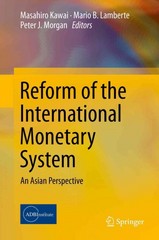Question
Do you agree with the point below? Explain in detail. The globalisation of production has beenfacilitatedby political and technological changes that go hand in hand
Do you agree with the point below? Explain in detail.
The globalisation of production has beenfacilitatedby political and technological changes that go hand in hand as one could not exist without the other.The changesin technology since the 1980s has resulted in upgrades tomanufacturingfacilities that would increase output and efficiency to export markets for the respective countryand multinational corporations (MNCs).The changes in technology also brought about an advance in communication systems so MNCs couldtransmitinformation from its home country to theirmanufacturingplants at a faster rate,hasteningthe globalisation of production.Hence,MNCswould need to outsource theirmanufacturingplants to countries that offer cheaperlabourandwithcommunication channels set up so information could be transmitted quickly.This led to policies beingimplementedby governments to offer these MNCs withfavourable terms to export and import in a country.For example, an American pursuit to chase profits at low labour costs led to a trade agreement in 2001with China as they offered a higher production output and lower labour costs for American MNCs.(Collins, 2021)However, at a higher rate of production caused bylabour, greed from MNCsto chase profitscouldresult in overworking their workersthat may cause political instability. For example, due to the increase in globalisation of production comes more work to be done in a country and that led to"karoshi" in Japan which is death by overwork. This led the country's government to implement several measures to curb overtime for employees.
Communication Advancementtotransmitinformation quickly across countries
As somelower wage countries with a highly skilled workforce would look attractive to foreign MNCs, it would make sense for the MNC to outsource their highly skilled workersfortheirmanufacturingplantsto reduce costs.This is partly made possible with theadvancementin technology allowing the headquarters of the MNC to communicate with their overseamanufacturingplant via "web conferencing".(The Importance of Technology for Multinational Businesses, 2017)Thisadvancementfrom sending postal mails that would take a few days for data to be transmitted to just a fewmillisecondstotransmitdata via email or web conferencingmadethe globalisation of production farmore easier.
Increasein Research andDevelopmemtefforts toincreasemanufacturingproductivity
With the increase in output inmanufacturingdue toan increase in Research and Developmentin China,coupled with the fact that China islooking to switchoperatingmanufacturingplantsto a high-end modular design, this attractsforeign direct investments (FDIs) to their country as investorsseekfor cheaplabourandinatechnologicallyadvancedenvironmentfor their respective company and thistechnologicalchange toopowersglobalisation of production.
MNC exploitation of cheaplabourthat resulted in political backlash
The globalisation in production alsoled to MNCs sourcing for cheaplabourand this led to campaigns in countries to make environments more sustainable for the workforce working in cheaplabour.As Nikeis a major international company, they would need to producegarmentsat a rapidrate,so they looked to organising their own workforce of cheaplabourin other countries. One article finds thatworkersthat worked for Nike in these "sweatshops" were paid as low as "$US1.25' a day.Additionally, living conditions for people in these said "sweatshops" "were forced to live in slums near open sewers, and shared toilets and bathwater with multiple families".It is worth noting that Nike has "an annual revenue of over $US30 billion" so paying the workers adequately and improving their working environmentshouldn'tbe an issuebut greedgetsthe better of this MNC.
This eventually led to political backlash in the United States where the company is based in. Americans werecampaigningagainst these"sweatshops" as they were inhumane.
Increasemanufacturingproduction that led to an increase in Innovationand Research and Development(R&D)efforts
With Chinaspush to become a universal manufacturing workhorse, the government hasimplementedpolicies to increase R&D efforts"The 1997 National Conference on TechnologicalInnovation" that ledmoreinnovativeways to increase production capacity"athigh-end manufacturing industry" with"relatively high technology level and production efficiency"that resulted in"relatively low labour intensity".
This shows us that the globalisation of production has led to many innovative measures that countries took to boost manufacturing capacity at an efficient rate.This led to China being our economicmanufacturingpowerhouse of the world.
With the globalisation of production came technological changes likeimprovementin communication systems and increase in innovation efforts from countries,thissurfacedsocial factors that causepoliticalbacklash due to MNC greed.Hence, in mypersonal opinionfrom my findings and research, the technological changes outweigh the political changes in terms of apositiveimpact. The technological changesbenefittheconsumersquality of life due to improvements in manufacturingcapabilities,faster transmission of communication and innovationwhile MNCstake advantage of thesetechnological changesthat lead tosocialimpactsin thepursuit ofcheaplabourexploitationin foreign countries that resultsin unhumanitarianconditionsof workers.Thiswouldentailpolitical changes due to protests in the home countryof the MNCin questionthat demandsbetterconditions for workers incountries with sweatshops.
Hence, the facilitation of globalisation of production is featured by positivetechnological changes thatinfluence negativesocialchanges that requirespoliticalamendment by governments.However, it can be argued that political changes like theFree Trade Agreements (FTAs) influence"economies to experience faster growth while better meeting the needs of itsconsumers"which is a rather positive political change of globalisation of production.But from my point of argument, human life should be regarded as the most important factorin globalisation that is why I would argue that the technologicalchangeshavea more positive outlook than thepoliticalchangesbutdue toMNCsexploitationofsocial workingenvironmentsthat harm human lifewhichresults inprotests andgovernmental policies to improvethe worker's conditions that are affected bycheaplabour.
Step by Step Solution
There are 3 Steps involved in it
Step: 1

Get Instant Access to Expert-Tailored Solutions
See step-by-step solutions with expert insights and AI powered tools for academic success
Step: 2

Step: 3

Ace Your Homework with AI
Get the answers you need in no time with our AI-driven, step-by-step assistance
Get Started


